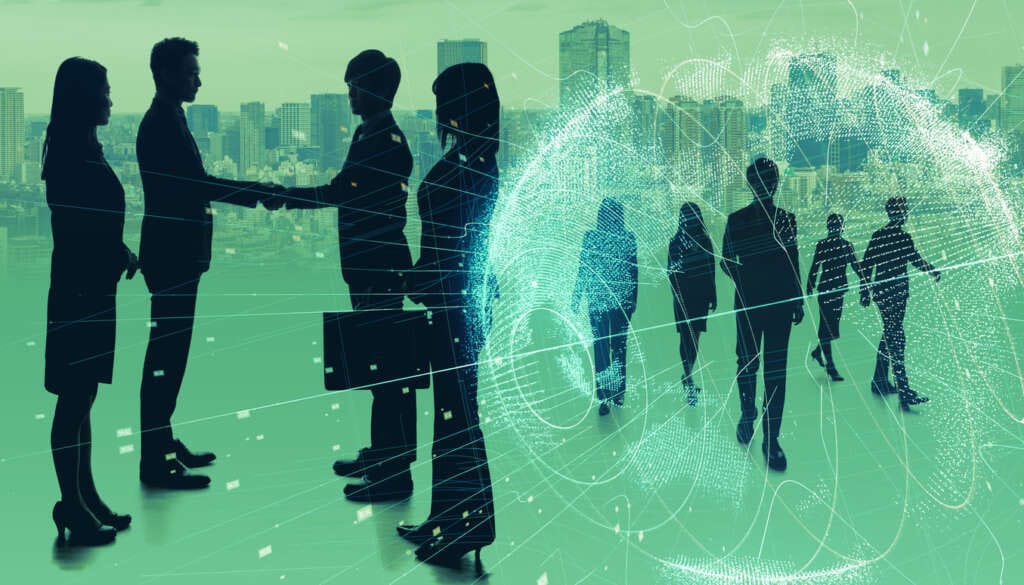
The AI race is on – so what role will ChatGPT play in future B2B PR and Marketing strategies?
By Judith 
ChatGPT has become the quickest growing online platform ever, attracting 100 million users at an exponential rate – with over 90% organic visitor traffic. But what affect will this have on communications in the B2B sector? Judith Ingleton-Beer, CEO of IBA International, highlights three hurdles that B2B communicators will face following the momentous growth of ChatGPT: what it can do better than us, what it isn’t able to do, and unravelling legal and copyright issues.
ChatGPT was launched in November 2022 by US-based startup OpenAI and is already taking the B2B Marketing and PR industry by storm! However, it quickly unravelled that OpenAI did in fact launch as a not-for-profit business, with a prestigious lists of investors, including Tesla CEO Elon Musk.
Microsoft made its first $1billion investment in OpenAI the same year as Sam Altman’s appointment as CEO of OpenAI, just as Bing was losing the battle for search engine top spot. But the battle was far from over. Yes, Google had been caught slacking but the company is now accelerating its AI development with a new platform, Google Bard. The AI race has well and truly begun!
The wider generative AI debate has instigated interesting conversations in the PR and Marketing industry. In fact, PR News shared a poll in January 2023 asking how PR and Marketing professionals intend to use generative AI technologies – despite a number of respondents agreeing that they would use it for writing copy or social media content, it also found that a large number of professionals would prefer to avoid using it completely!
B2B PR and Marketing pros have been left questioning, how can they leverage the benefits of using generative AI technology without stepping into robotic realms, all while keeping a focused eye on copyright?
-
The new digital age of PR and Marketing
The media is all over ChatGPT, but as B2B PR and Marketing professionals, our attention should be placed on human generated copy and how marketing-speak has grown into what already sounds like computer-generated discourse. The issue isn’t that machines write like humans – it’s that humans are beginning to write like machines. ChatGPT should serve as a wakeup call for PR and Marketing professionals to stop writing in marketing lingo and start using words to convey ideas and thoughts.
From an infinite number of monkeys writing Shakespeare, to the WSJ’s first Buzz Word Generator, to Chat GPT, AI has got better, but actually not fundamentally changed in its basic capabilities.
ChatGPT is the ultimate wordsmith – we’ve all read press releases and articles that spew out words that sound compelling but say nothing – ‘I see the words, but what do they mean’ is a phrase often used in my company. Many writers, bloggers, and content creators are producing copy with no interest in the subject of the copy. A machine can do that, and do it rather well!
-
Think outside of the AI box
PR and Marketing agencies must be more than just wordsmiths. Quality writing is fuelled by intention – we are trying to deliver subliminal corporate messaging in our press releases that gets across more than just a product launch. Coherence isn’t enough, communication is more complex and precise.
B2B professionals bring unique skills, perspectives, and relationships that cannot be replaced by AI. Often a single piece of content needs to support a number of different precisely targeted audiences – an editor, a buyer, and a C-level ratifier. Try telling that to ChatGPT!
The tool can assist with many tasks but there are three essential components of effective PR and Marketing: creativity, critical thinking, and emotional intelligence that it lacks.
We humans are born to think outside the box, to come up with completely new and original ideas. Thinking outside the box is impossible for ChatGPT – it is the box, it creates the box, it is limited by the box it is in.
These limitations highlight the complementary nature of AI and human B2B professionals. AI can perform certain tasks faster and more efficiently, but the human brain brings a unique skillset that is critical to effective Marketing and PR practices.
Critical thinking is fundamental to understand causes from correlations, understand where bias is and remove it, distinguish between a primary source and someone’s personal opinion – we know the distinction between truth versus their truth gets muddier by the day, but the human brain can figure it out!
Selling new and original developments and solutions require targeting copy at different audiences with different needs. This requires critical thinking – something robots can’t do. AI chatbots can’t ‘read into a situation’. Our human emotional intellect makes us able to understand and handle an interaction or debate that needs more emotional communication methods.
But emotional intelligence isn’t all its lacking.
-
Keep a legal eye on copyright
Trust is a critical aspect of ChatGPT for the user to believe that their generated text is factually correct. With people and machines creating tens of millions of new web pages daily, will using machine-generated content be pivotal in enabling your organisation to stand out from the rest, or cause copyright troubles?
Google’s position on AI-produced content is clear – companies that use AI-generated content to manipulate ranking in search results will violate their spam policies. So, where should B2B PR and Marketers stand? Clearly trust is ChatGPT’s biggest weakness. Unlike Google, you don’t know the source of the information, you can’t judge based on the type of site or the experience of the author. Google’s system of basing quality on the number of citations of an article isn’t in place. Further research is going to be needed and this will take time, so people will still return to trusted sources and expertise.
The U.S. Copyright Office has now launched a new initiative to examine the copyright law and policy issues raised by artificial intelligence (AI), including the scope of copyright in works generated using AI tools and the use of copyrighted materials in AI training. The Copyright Office says the initiative has been launched: “in direct response to the recent striking advances in generative AI technologies and their rapidly growing use by individuals and businesses.” And this begins right at the input stage, not the output.
ChatGPT and similar software use existing text, images, and code to create ‘new’ work. The technology must get its ideas from somewhere, which means trawling the web to ‘train’ and ‘earn’ from pre-existing content. OpenAI and similar alternatives have already been subject to many lawsuits, arguing that AI tools are illegally using other people’s work to build their platforms.
With the PR Council also weighing in on this issue, all we can do is wait for official guidance and standards on the use of AI in PR. For now, communications pros are urged to apply caution to any external-facing use of output from ChatGPT.
Should B2B communicators roll out the welcome mat for AI in PR and Marketing?
Communicators in the B2B space can make the most of a number of ChatGPT’s helpful capabilities, such as automating repetitive tasks and providing real-time data at the click of a button. But don’t be too quick to rush all-in. AI should be used as a reliable tool to achieve an improved level of audience engagement – all underpinned by the human touch!


